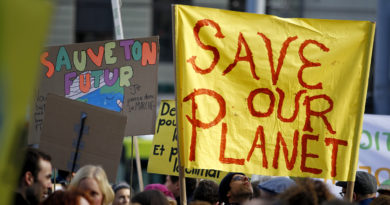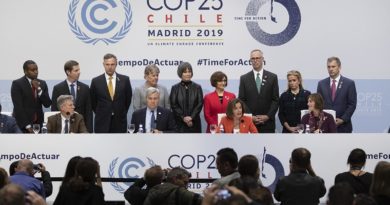Earth to become ‘an uninhabitable hell’, warns UN
The UN is accusing political and business leaders of willingly ‘sowing the seeds of our own destruction’. “We have seen little progress on reducing climate disruption and environmental degradation,” – UN Secretary-General António Guterres.
A “staggering” rise in climate disasters has marked the first 20 years of the 21st century, and industrial nations are “failing miserably” to reduce climate-change-enhancing emissions, warns UN.
The UN Office on Disaster Risk Reduction issued an urgent call to countries, especially industrialized nations, to better prepare for catastrophic events of all kinds, from earthquakes and tsunamis to the new coronavirus.
The agency issued a report Monday cautioning that “the future of mankind looks very bleak” if the world continues to endure the same rise in natural disasters brought on by the extreme weather seen over the last two decades.
Between 2000 and 2019, there was a “staggering” number of natural disasters, which caused 1.23 million casualties and led to $2.97 trillion in worldwide economic losses, according to the report.
The figures had nearly doubled during that period to 6,681, up from 3,656 between 1980 and 1999, the report said.
Researchers pointed to a failure of political and business leaders to take meaningful action to mitigate the impact of climatic change and stop the planet from turning into “an uninhabitable hell for millions of people.”
Meanwhile, the coronavirus pandemic, which has killed more than 1 million people and infected at least 37 million, has exposed the failure of “almost all nations” to prevent a “wave of death and illness” despite repeated warnings from experts, the report said.

Asia was the worst hit from climate disasters in the last 20 years, with 3068 natural disasters from 2000-2019. Reports of extreme weather conditions and disaster events have increased in frequency.
Over the past two decades, China alone has experienced more than 500 natural disasters and the US, about 467 natural disasters.
Deadliest among them have been the 2004 Indian Ocean Tsunami, the 2008 Cyclone Nargis in Myanmar, and the 2010 Haiti earthquake.
According to the report, greenhouse gas emissions will need to be reduced by at least 7.2 per cent every year in the next 10 years to reduce temperatures by 1.5 degrees, the target agreed in Paris.
Also on Tuesday, the World Meteorological Agency, another UN body, warned that by 2030, 50% more people will need weather-related humanitarian aid than the 108 million who needed it in 2018. More than 11,000 disasters can be attributed to water-related weather events over the past 50 years, the agency said, events that have caused 2 million deaths and cost the world economy $3.6 trillion.




